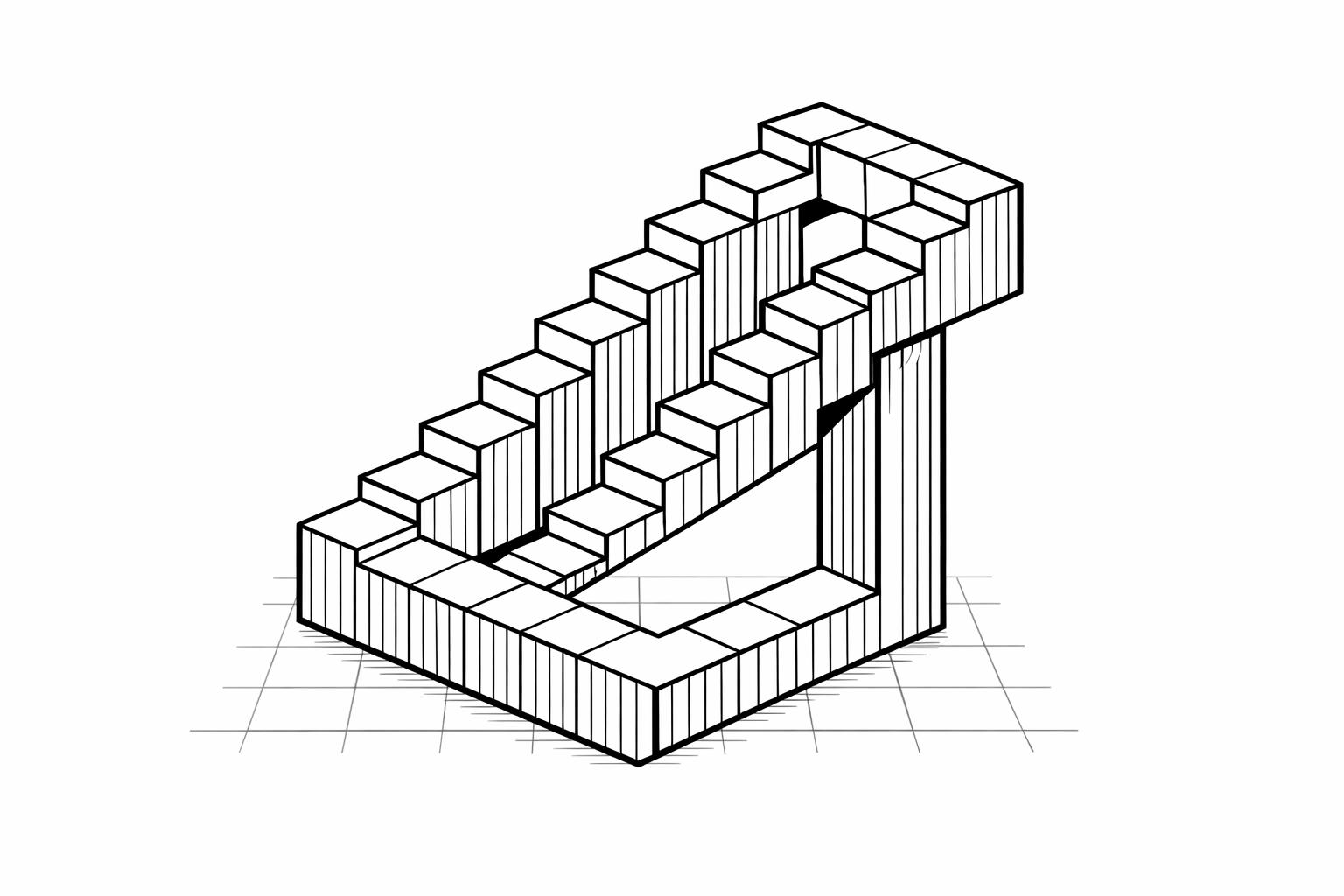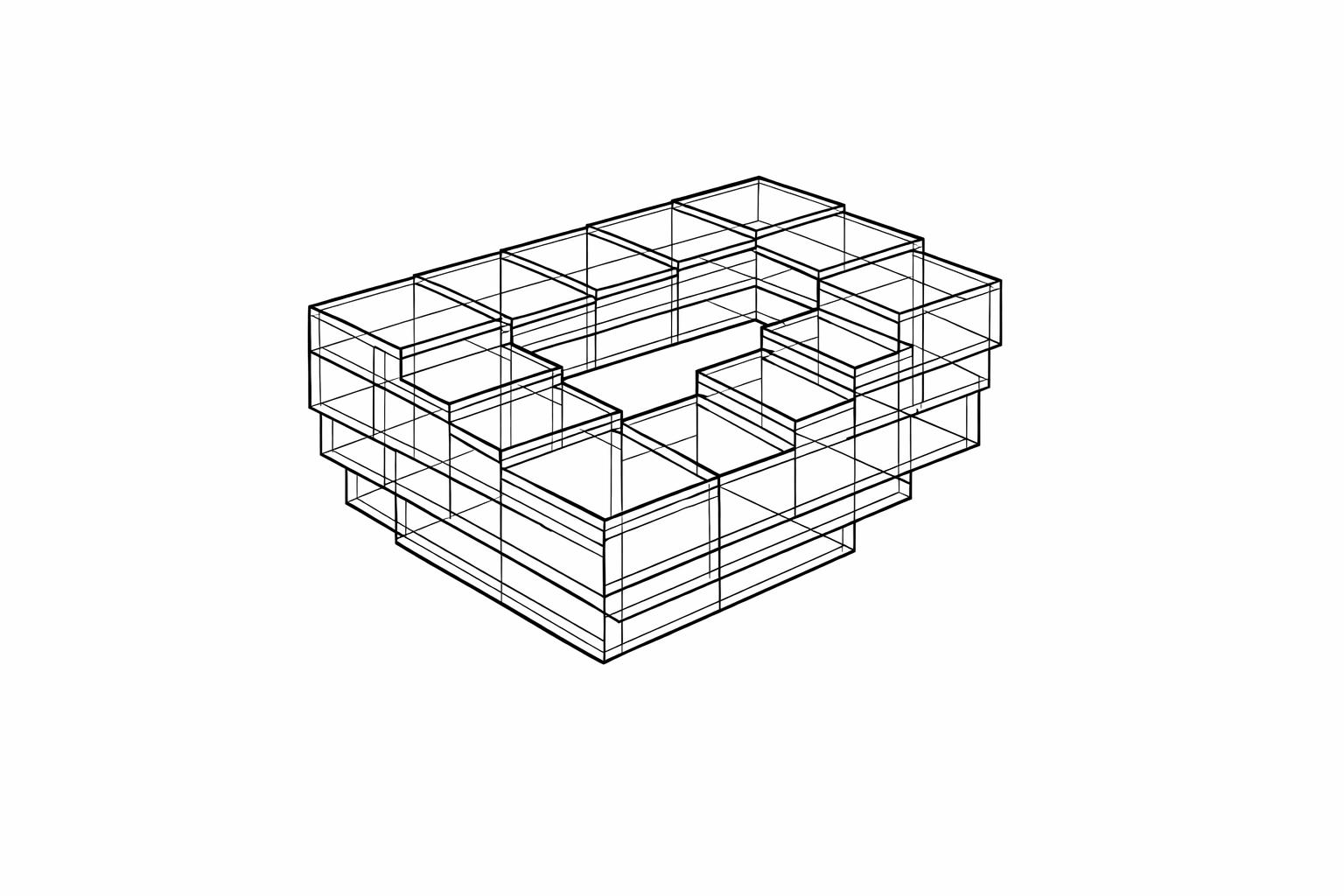Top Prompt Libraries Covering All Major AI Models

AI tools like ChatGPT, Claude, Gemini, and MidJourney are transforming how businesses operate. But creating effective prompts for these tools can be challenging. Prompt libraries solve this by offering pre-made templates designed for specific AI models and tasks, saving time and boosting productivity. Below is a breakdown of six popular prompt libraries and their key features:
- God of Prompt: Covers major models like ChatGPT, Claude, and MidJourney with 30,000+ prompts. Offers a lifetime plan for $150 and supports custom templates.
- AIPRM: Focused on ChatGPT, it’s ideal for teams needing collaboration tools. Plans start at $990/year.
- PromptLayer: Designed for developers to track and analyze API calls for prompt optimization.
- PromptBase: A marketplace for buying and selling prompts, with a focus on quality over quantity.
- FlowGPT: Community-driven library for learning and sharing prompts, but quality may vary.
- PromptHero: Specializes in visual AI prompts for platforms like MidJourney and DALL-E.
Each library caters to different needs, from text generation to image creation, and offers unique pricing and features. Choose based on your specific workflow and AI model requirements.
Quick Comparison
| Platform | Focus Area | Best For | Pricing | Key Limitation |
|---|---|---|---|---|
| God of Prompt | Multi-model | Businesses needing variety | $0-$150 | May overwhelm beginners |
| AIPRM | ChatGPT | Teams needing collaboration | $990-$4,990/year | Limited to ChatGPT |
| PromptLayer | Developers | Technical teams | Usage-based | Complex for non-technical users |
| PromptBase | Marketplace | Buying/selling specialized prompts | Pay-per-prompt | Costs can add up |
| FlowGPT | Community-driven | Experimentation and learning | Free | Inconsistent quality |
| PromptHero | Visual AI | Image generation projects | Varies | Limited to visual content |
This guide helps you select the right library based on your goals, budget, and preferred AI tools.
How to leverage AI Prompt Libraries for success
1. God of Prompt
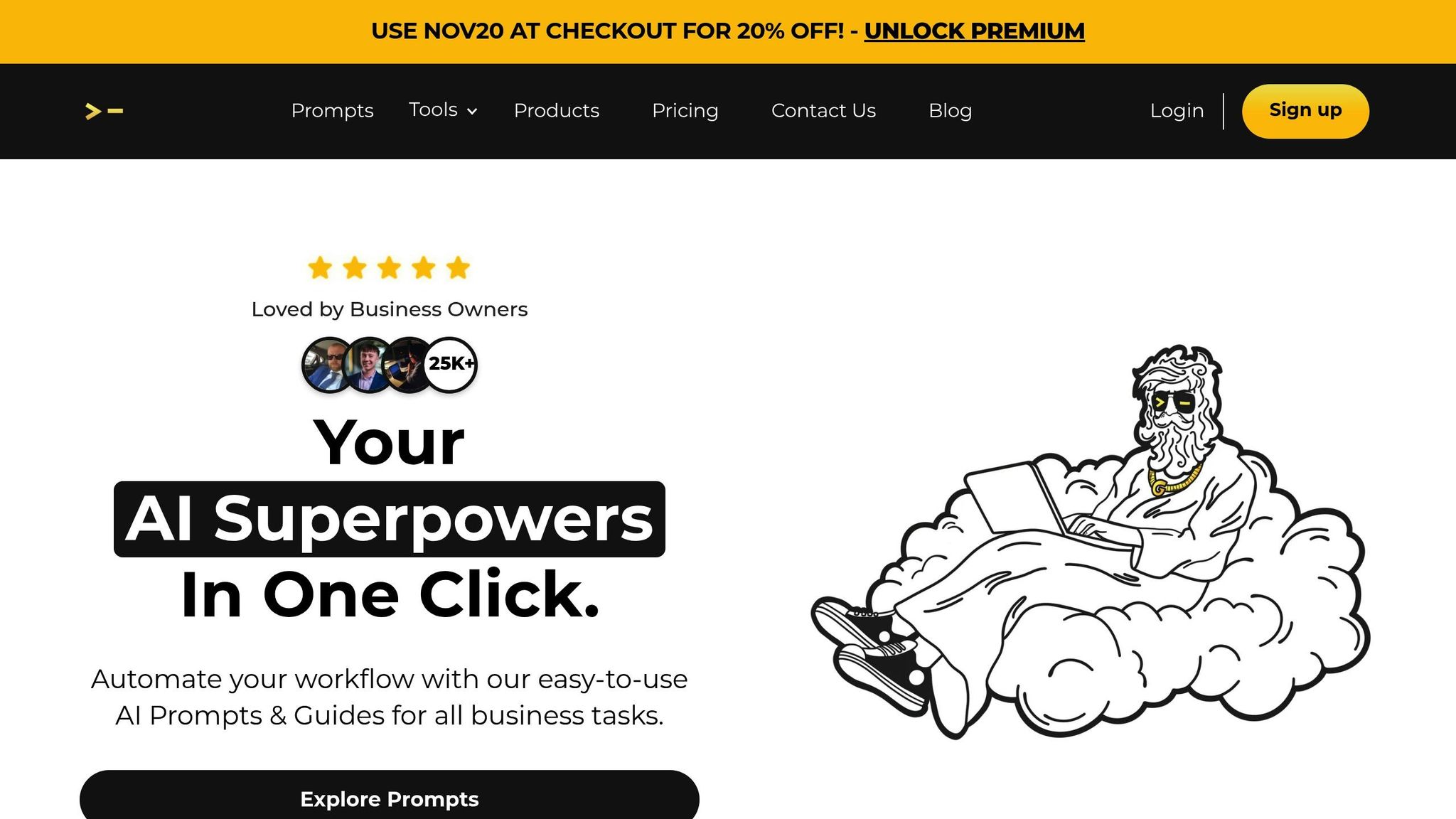
God of Prompt is a robust library designed to provide reliable AI solutions across various platforms. It offers a wide range of specialized prompts tailored to major AI models, making it a valuable tool for businesses looking to simplify and optimize their AI workflows.
Model Coverage
God of Prompt ensures broad compatibility, offering specialized prompts for ChatGPT, Claude, Gemini, MidJourney, and newer models like Grok, Veo, and Sora. This extensive range allows teams to maintain seamless workflows, no matter which AI model they rely on for different tasks.
The platform organizes its prompts by model type, so users can quickly locate the right template for their specific tool. Whether you're working with ChatGPT to generate text, using MidJourney for visual content, or leveraging Claude for data analysis, the prompts are fine-tuned to align with each model's strengths and response patterns. This compatibility supports a diverse and versatile prompt library.
Prompt Volume
With a collection of over 30,000 prompts, the library spans industries such as marketing, finance, e-commerce, education, sales, and productivity. This extensive selection means professionals across various fields can find ready-to-use templates, eliminating the need to create prompts from scratch.
Prompts are categorized for practical business applications, featuring sections tailored for solopreneurs, SEO specialists, and content creators. These sections include dozens of tested templates designed for tasks like crafting email campaigns, conducting market research, and performing financial analyses.
Customization and Collaboration
God of Prompt enables users to create unlimited custom templates with its Complete AI Bundle, ensuring businesses can tailor prompts to meet their specific needs. Integration with Notion further enhances collaboration, allowing teams to organize, share, and refine their prompt collections within familiar workflows.
The platform also provides detailed how-to guides and resources on prompt engineering, empowering users to tweak existing templates or design new ones. These resources help teams adapt prompts to their unique requirements while maintaining effectiveness across different AI models, making the library even more versatile for businesses with diverse needs.
Pricing and Access
God of Prompt offers a flexible pricing model that caters to various budgets and business requirements. A free tier includes access to over 1,000 ChatGPT prompts and 100+ MidJourney prompts, giving teams a chance to explore the platform before committing to a paid plan.
For full access, the Complete AI Bundle is available for $150, providing lifetime updates and unlimited custom prompt creation across the entire 30,000+ prompt library. Specialized bundles are also available: the ChatGPT Bundle ($97) focuses on text-based tasks, while the MidJourney Bundle ($67) is designed for visual content creation.
All paid plans include lifetime updates and come with a 7-day money-back guarantee, offering users peace of mind while exploring the platform’s capabilities.
2. AIPRM
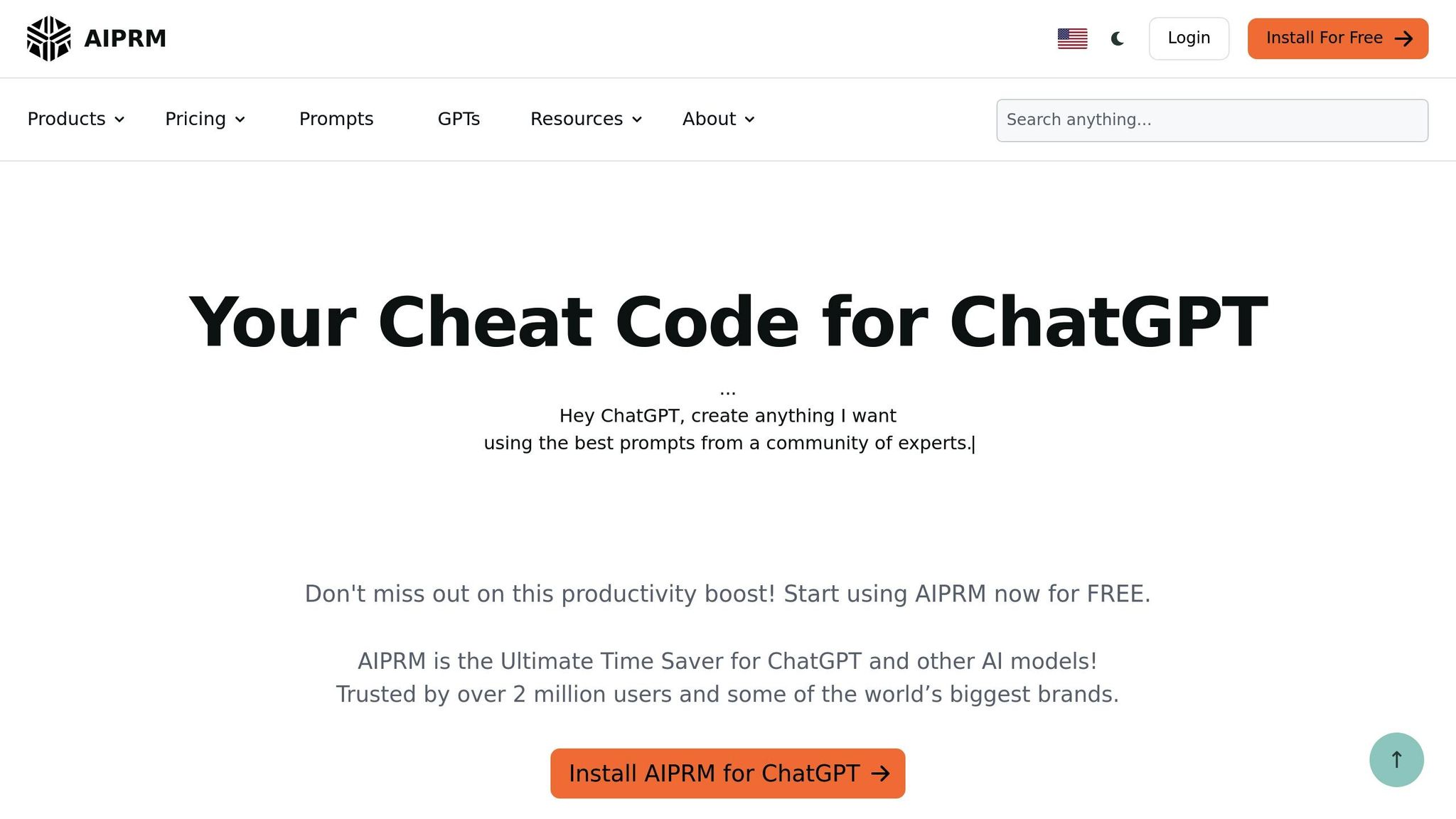
AIPRM is designed to streamline AI workflows, serving as a platform for creating and refining prompts tailored to marketing teams, support groups, and agencies. Its focus on team collaboration and consistent output makes it an excellent choice for businesses that rely on unified AI-generated results across multiple users.
Prompt Volume
AIPRM prioritizes quality over sheer quantity. Every prompt in its library undergoes community testing to ensure it meets specific business demands. Users can save up to 48 favorite prompts and organize them into 12 lists, making it easy to manage projects by client, use case, or campaign.
Customization and Collaboration
AIPRM goes beyond offering high-quality prompts by equipping teams with collaborative tools. It allows multiple users to co-author and refine prompts together, reducing trial-and-error efforts and ensuring consistent results. The platform also includes features for tailoring prompts to specific business goals, all while keeping private collections neatly organized.
Pricing and Access
AIPRM uses an annual subscription model with three pricing tiers:
- AIPRM Elite: $990/year for 2 licenses, 120 private templates, custom profiles, and co-authoring tools.
- AIPRM Team: $1,990/year for 5 seats, with one Elite license per user - perfect for smaller teams.
- AIPRM Business: $4,990/year, offering enterprise-level features for larger organizations.
Each plan is designed to support efficient team collaboration and ensure businesses get the most out of their AI workflows.
3. PromptLayer
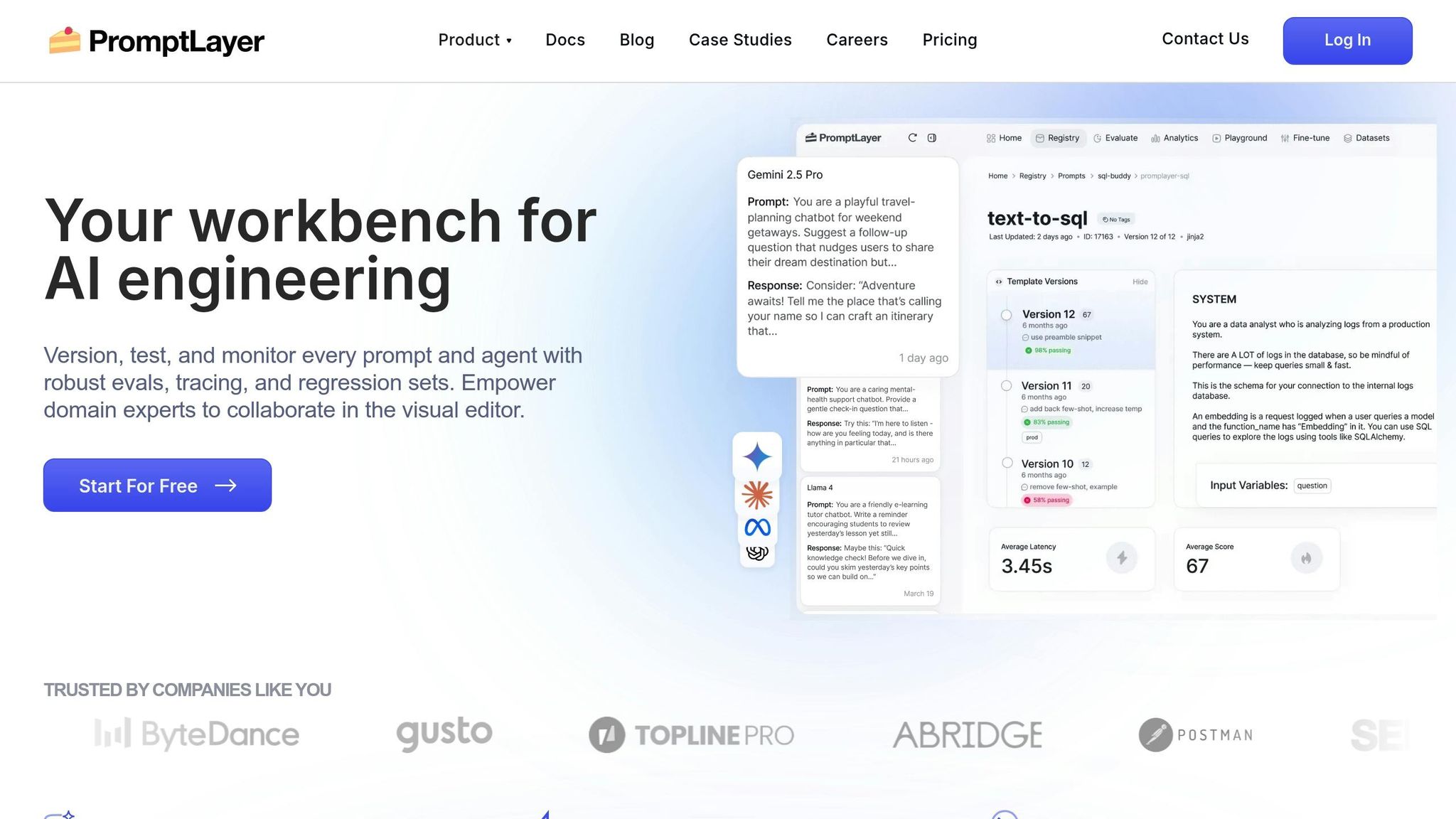
PromptLayer is a platform designed for developers to log and analyze API calls, making it easier to fine-tune AI interactions.
Model Coverage
PromptLayer works seamlessly with popular text-generation models like OpenAI's GPT. By logging detailed data about prompts, it helps developers evaluate performance across different scenarios. These insights are invaluable for improving workflows and making interactions with AI more effective.
The platform’s API-first design allows teams to manage and refine prompt workflows programmatically. This setup ensures precise tracking and supports ongoing improvements in how teams utilize AI.
Customization and Collaboration
Every API call is logged, capturing details like prompts, responses, token usage, and response times. This data supports prompt versioning, making it easier to test and experiment with different approaches. Shared templates and analytics dashboards further enhance team collaboration, helping maintain consistency across projects.
Pricing and Access
PromptLayer uses a usage-based pricing model. For developers and small teams, a free tier provides an opportunity to explore prompt optimization without upfront costs. For larger teams and enterprises with higher usage demands, scalable plans offer advanced features and enhanced support to meet their needs.
4. PromptBase
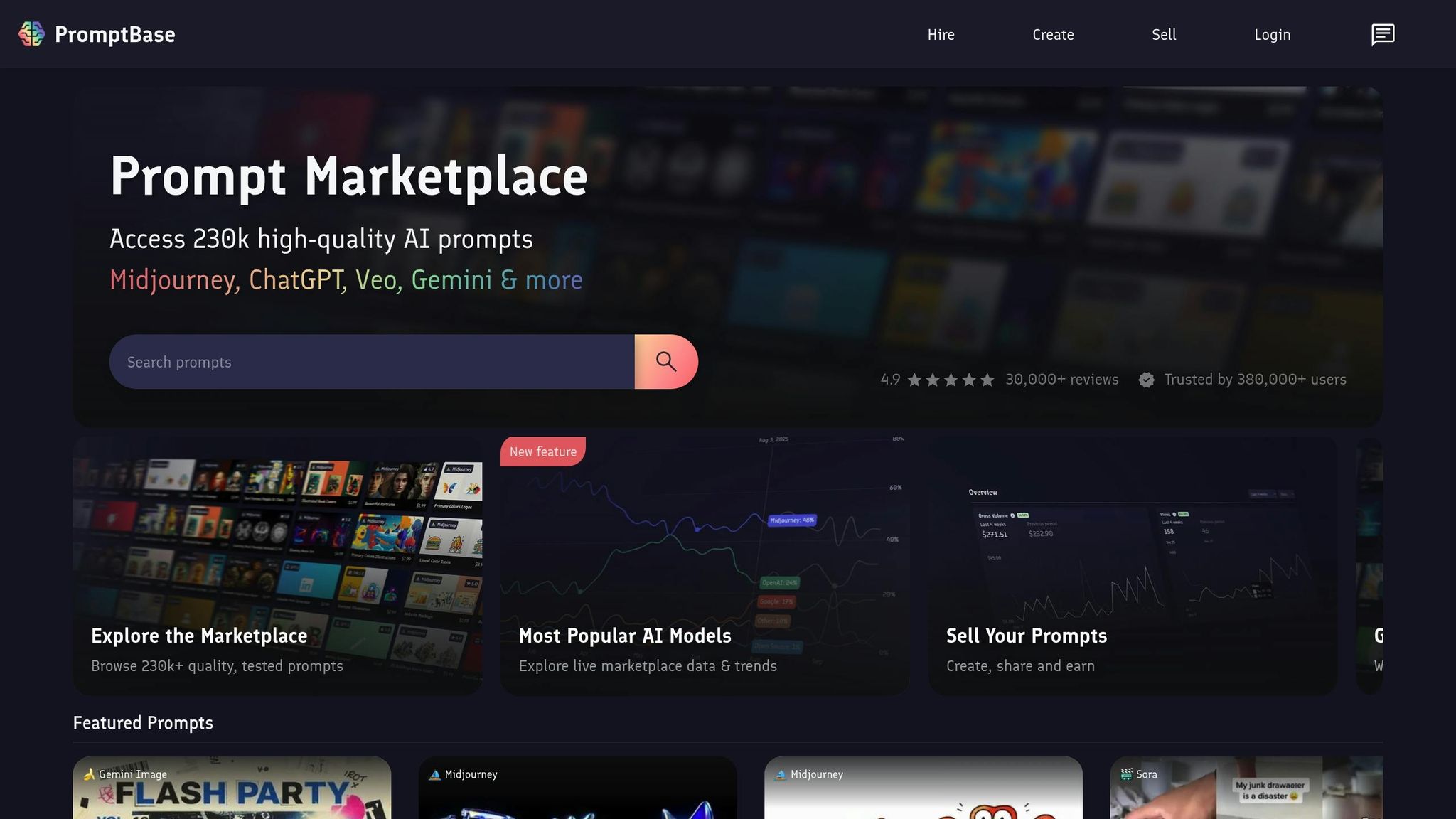
PromptBase is an online marketplace designed for buying and selling high-quality AI prompts tailored to various industries. Beyond just prompts, the platform also enables users to create images directly using Stable Diffusion, making it a handy tool for visual content generation.
Model Coverage
PromptBase focuses on Stable Diffusion technology, allowing users to generate images right on the platform. This feature is especially appealing to creative professionals looking for quick and effective ways to produce visual assets.
Prompt Variety
The platform offers a curated selection of prompts spanning multiple industries and creative fields. By prioritizing quality over quantity, PromptBase ensures users can find prompts that deliver results without sifting through unnecessary filler. This approach streamlines the creative process for those working on diverse projects.
Customization and Collaboration
PromptBase operates on a buy-and-sell model, allowing users to purchase proven prompts or monetize their own creations. A notable feature is the platform's rating system, which boasts a 5/5 rating on topai.tools, reflecting strong user satisfaction with both the quality of prompts and the platform's ease of use.
Pricing and Access
Accessing the marketplace is free, and users receive 5 daily credits for generating images. Individual prompts are sold at prices set by their creators, so you only pay for what you actually need. This flexible pricing model makes PromptBase an accessible option for professionals and hobbyists alike.
sbb-itb-58f115e
5. FlowGPT
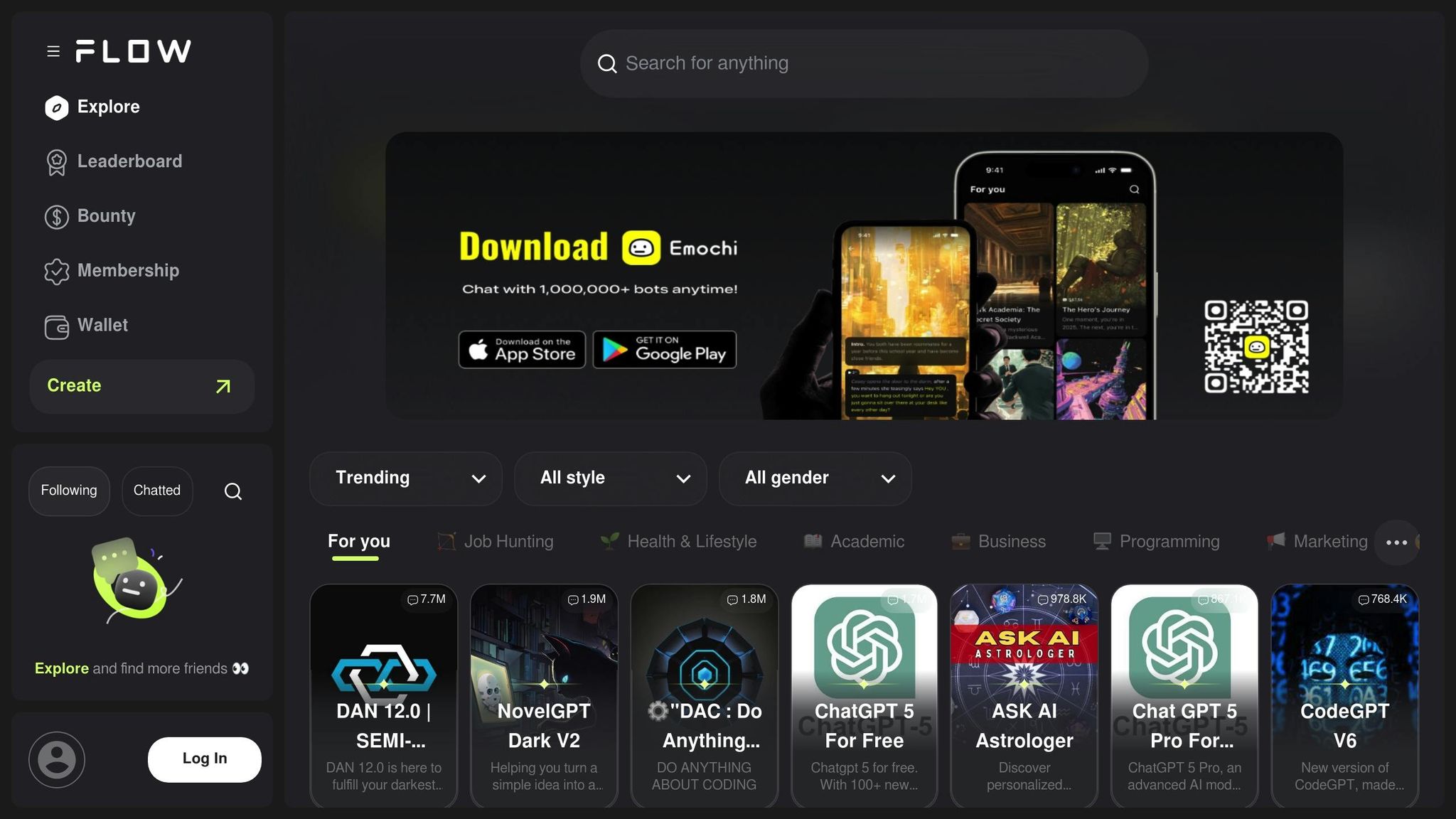
FlowGPT is another prompt library worth mentioning, though details about the specific AI models it supports are somewhat unclear. It frequently shows up in comparison charts as a prompt library, but there isn't much documentation outlining the models it caters to. Its role in the broader AI ecosystem seems to be shaped by the growing trend of platforms fine-tuning prompts for various models.
6. PromptHero
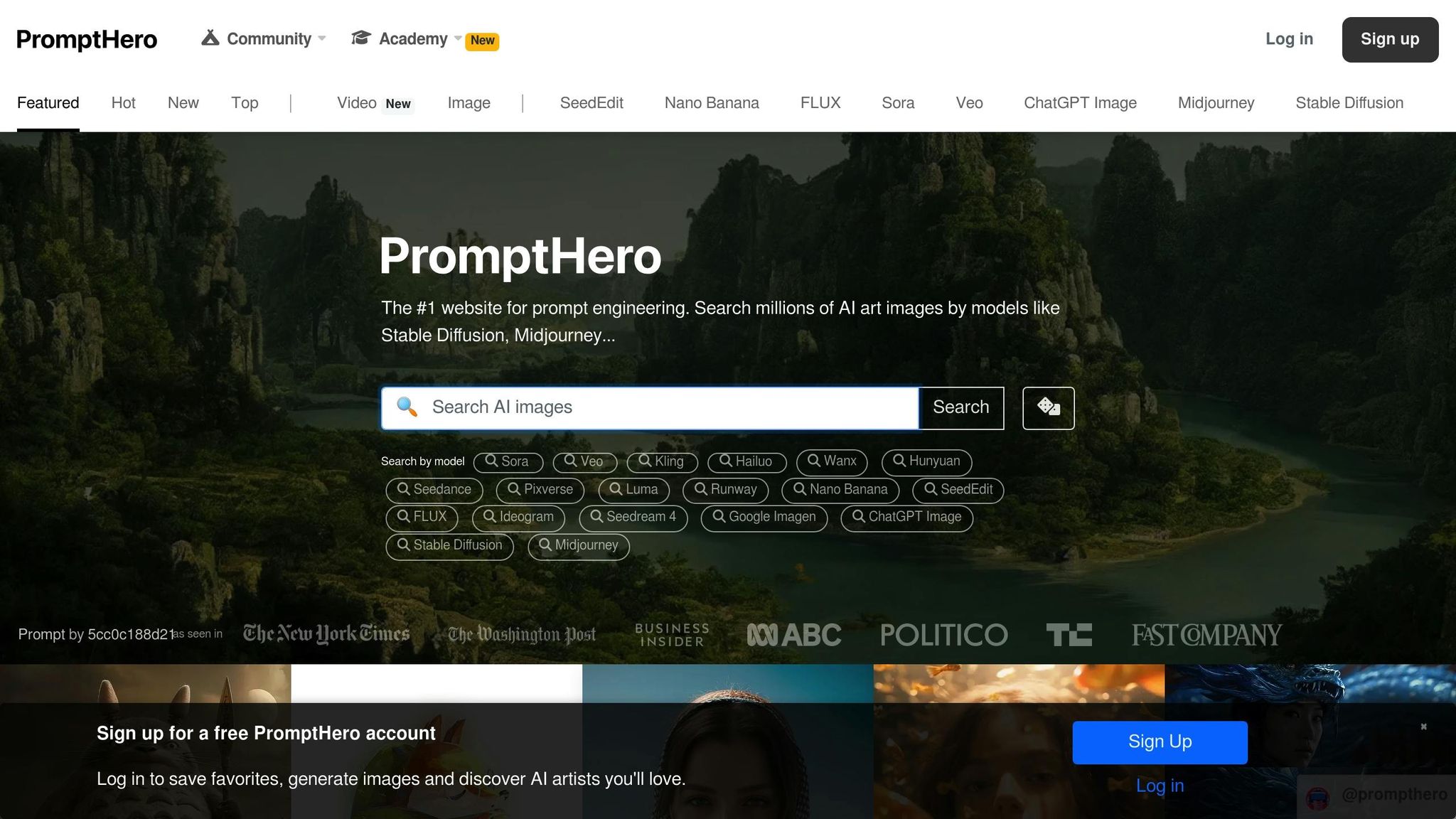
PromptHero is a platform dedicated to visual AI, providing prompts specifically optimized for generating images.
Model Coverage
PromptHero works with some of the most popular visual AI platforms, including MidJourney, DALL-E, and Stable Diffusion. Its library is carefully designed to match the unique requirements of these models, making it easier for creators to craft prompts that deliver the best results.
Prompt Volume
One of PromptHero's standout features is its visual preview system, which pairs generated images with their corresponding prompts. This makes it a fantastic tool for artists, illustrators, and social media creators, simplifying the creative process and helping users visualize outcomes instantly.
Pricing and Access
With a 5/5 rating on topai.tools, PromptHero is highly regarded for its user-friendly, searchable format. Users can quickly find prompts based on style, subject, or output type. Built with visual creators in mind, the platform fits seamlessly into workflows focused on image creation.
Whether you're a freelancer or part of a business that relies on visual content, PromptHero offers a practical, efficient solution tailored for generating high-quality images.
Advantages and Disadvantages
Each prompt library comes with its own set of strengths and challenges, making your choice dependent on your specific AI tasks and preferences. Here's a closer look at what each platform brings to the table.
God of Prompt stands out with its extensive library of over 30,000 prompts and compatibility with major AI models. Its lifetime updates and organized Notion-based system are strong selling points. However, the sheer volume of prompts can be daunting for beginners, and the pricing requires careful consideration depending on your usage needs.
AIPRM shines with its seamless browser integration, making it a favorite for users working directly within ChatGPT. This integration streamlines daily workflows, saving time. That said, its heavy focus on ChatGPT makes it less appealing for teams needing multi-model support.
PromptLayer caters to developers with features like analytics and version control, which are perfect for tracking prompt performance and making iterative improvements. But for non-technical users, its complexity can be a hurdle, especially if they’re just looking for ready-to-use prompts.
PromptBase operates as a marketplace, encouraging the creation of high-quality, specialized prompts through its buy-and-sell model. While this competitive approach often improves quality, the pay-per-prompt structure can become expensive for frequent users, and prompt quality can vary significantly between sellers.
FlowGPT emphasizes community engagement, allowing users to learn from shared experiences and collaborate on new ideas. This community-driven approach fosters experimentation but can result in inconsistent quality compared to more curated platforms.
PromptHero is a go-to for visual content creators, thanks to its preview system that pairs prompts with their corresponding images. This makes it easier to understand what works for different image-generation models. However, its focus on visual AI limits its usefulness for text-based workflows.
Here’s a quick comparison of the platforms:
| Platform | Pricing | Model Coverage | Best For | Key Limitation |
|---|---|---|---|---|
| God of Prompt | $0-$150 | ChatGPT, Claude, Midjourney, Gemini | Comprehensive AI workflows | Content volume can overwhelm beginners |
| AIPRM | Free-Premium | Primarily ChatGPT | Browser-based ChatGPT users | Limited multi-model support |
| PromptLayer | Developer pricing | Multiple models | Technical teams needing analytics | Complex for casual users |
| PromptBase | Pay-per-prompt | Various models | Specialized, high-quality prompts | Costs add up quickly |
| FlowGPT | Community-based | Multiple models | Learning and experimentation | Inconsistent quality control |
| PromptHero | Varies | Visual AI models | Image generation projects | Limited to visual content only |
Your choice ultimately depends on your primary goals and comfort with technical tools. If you need comprehensive coverage, God of Prompt offers a vast library that’s hard to beat. For casual users focused on ChatGPT, AIPRM provides an easy-to-use solution. Meanwhile, visual creators will appreciate PromptHero’s specialized focus on image generation.
Pricing models also vary significantly. God of Prompt offers a predictable one-time fee, while PromptBase can become costly for heavy users. Technical skills required range from beginner-friendly platforms like AIPRM and PromptHero to more advanced tools like PromptLayer.
Finally, consider quality and curation. Platforms like God of Prompt and PromptBase maintain higher curation standards, while FlowGPT offers a more experimental, community-driven approach with variable quality. Understanding these trade-offs will help you align your choice with your specific needs and workflows.
Conclusion
God of Prompt stands out as a powerhouse among AI prompt libraries, offering an impressive collection of over 30,000 prompts tailored for top AI models like ChatGPT, Claude, Midjourney, and Gemini. For $150, its Complete AI Bundle delivers not only continuous updates but also a structured workflow system designed to optimize operations across marketing, sales, finance, and productivity for U.S. businesses.
What sets God of Prompt apart is its forward-thinking approach, with support for emerging models like Grok, Veo, and Sora, ensuring users stay ahead as AI technology advances. Its broad multi-model compatibility and straightforward, one-time pricing make it a smart investment for businesses looking to seamlessly integrate AI into their long-term strategies.
FAQs
How can I select the best prompt library for my AI model and business goals?
To pick the right prompt library, start by pinpointing the AI model you’re working with (like ChatGPT, Claude, or Gemini) and clearly defining your business goals. Some libraries excel in creative tasks like generating images, while others specialize in text outputs or niche areas such as marketing and productivity.
Take a close look at the types of prompts the library offers - zero-shot, few-shot, or role-based - and see how they match your objectives. Check the library's ease of use and whether it includes tools or collections designed for your industry. Finally, try out some examples to confirm that the library genuinely improves your workflows.
What are the benefits of using a prompt library like God of Prompt instead of creating prompts yourself?
Using a prompt library like God of Prompt can make a noticeable difference in how you work with AI. Here’s why:
- Save Time: Instead of spending hours creating prompts from scratch, you can jump straight into leveraging AI with ready-made, well-thought-out prompts.
- Reliable Results: These prompts are carefully tested and fine-tuned to deliver consistent performance across different applications.
- Maintain Consistency: A prompt library helps ensure your AI interactions stay uniform, boosting productivity and keeping a polished, professional tone throughout your projects.
Whether you're in marketing, business, or creative industries, a prompt library streamlines your processes and helps you achieve better results with less effort.
How does God of Prompt ensure its prompt libraries work seamlessly with AI models like ChatGPT, Claude, and MidJourney?
God of Prompt crafts its prompt libraries with precision, making them work seamlessly with popular AI models like ChatGPT, Claude, and MidJourney. Each library is specifically designed to tap into the unique capabilities of these models, ensuring they deliver top-notch performance across a variety of applications.
With a strong emphasis on practicality and efficiency, God of Prompt offers tools and prompt collections that empower users in fields like business, marketing, and productivity. These libraries are continually updated to keep pace with AI advancements, guaranteeing they stay dependable and effective for a wide range of professional tasks.















